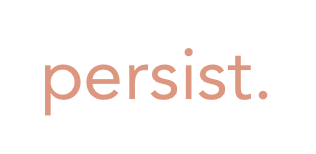The Shift Method: 3 Proven Ways to Do Less (and Why They’re So Hard)
Before I started Persist, I kept hearing the same thing everywhere I turned: “I just want less.”
Less on the calendar.
Less to remember.
Less of the pressure to do it all.
And here’s the truth we all know on some level: wanting less and actually creating less are two very different things. We are stuck in cycles of invisible labor, decision fatigue, and guilt. We keep thinking there must be a hack, a list, a new ai calendar app that will finally give us breathing room.
And yet… nothing changes.
At Persist, we’ve learned something important: there are only three real ways to get to less. We call this the Shift Method.
What Is The CareQuest Framework?
Before we get to the “how”, we need to talk about the “what.”
Your stress isn’t just about the number of tasks on your list. It’s about the invisible system behind them - the values, the beliefs, the standards driving what makes it onto your plate in the first place.
That’s why we use something I call the CareQuest Framework.
It helps families look at:
Values: What matters most to you
Beliefs: What you’ve been taught or absorbed about what “good” looks like
Standards & Priorities: The rules you set (often unconsciously) for how things should be done
Attitudes: The mindset you bring to your roles and responsibilities
Tasks: The visible work flowing from all of the above
Here’s the hard part: if your values and beliefs don’t line up, your standards and tasks will be in constant conflict.
For example: if you value family time, but believe “good parents put their kids in every enrichment activity,” then your calendar will feel impossible. Both values are important. But together, they’re unsustainable.
The CareQuest Framework helps you see the conflict, so you can start to solve it.
The Shift Method: 3 Proven Ways to Do Less
Once you see the system clearly, the question becomes: what now?
That’s where the Shift Method comes in. It’s the practical, three-part approach to actually creating less.
Stop: What can we decide not to do anymore?
Shape: What can we decide to do differently? By changing standards, redefining success and/or buying back time and energy?
Share: What should live on someone else’s plate, whether that’s a partner, our children’s, or outside help?
Each one is distinct. Each one is powerful. And each one comes with its own set of challenges.
Curious where you could Stop, Shape, or Share? Take the free CareLoad Assessment in Persist and see your invisible work mapped out?
Why It’s So Hard (and Why It’s Not Your Fault)
If shifting feels impossible, it’s not because you’re weak or disorganized. It’s because every step collides with something deep inside us:
Stopping triggers guilt and fear of judgement.
Shaping forces us to question our identity and standards.
Sharing requires trust, communication, and letting go of control.
No wonder we all feel stuck.
But here’s the good news: once you name the system, you can finally start to shift it.
What’s Next
Over the next three posts, I’ll break down each part of the Shift Method:
Stop: Why letting go feels impossible and how to start.
Shape: Why lowering standards and changing routines is harder than it looks.
Share: Why true partnerships and delegation feels out of reach and how to make it real.
This series is about giving you language, tools, and relief. Not because you’re failing but because the system is failing you.
How Persist Helps
This is why I built Persist. Not as a prettier to-do list, but as a Household Operating System that helps you finally see the system behind the stress and shift it.
CareLoad Assessment makes the invisible visible.
Insights show you where Stop, Shape, or Share could bring the most relief.
Partner Conversations guide alignment without fights.
Coaches provide expert, human support when you need help working through tough decisions or dynamics.
Get Persist Now. See your full CareLoad, start your first Shift, and feel the difference today.
Because less isn’t just possible. It’s necessary.
